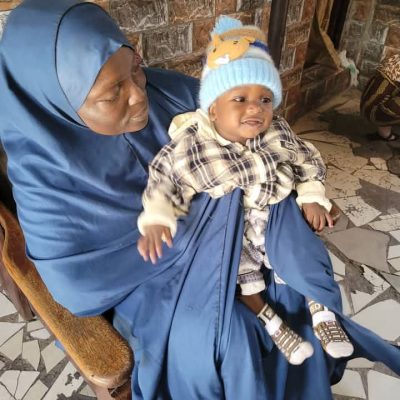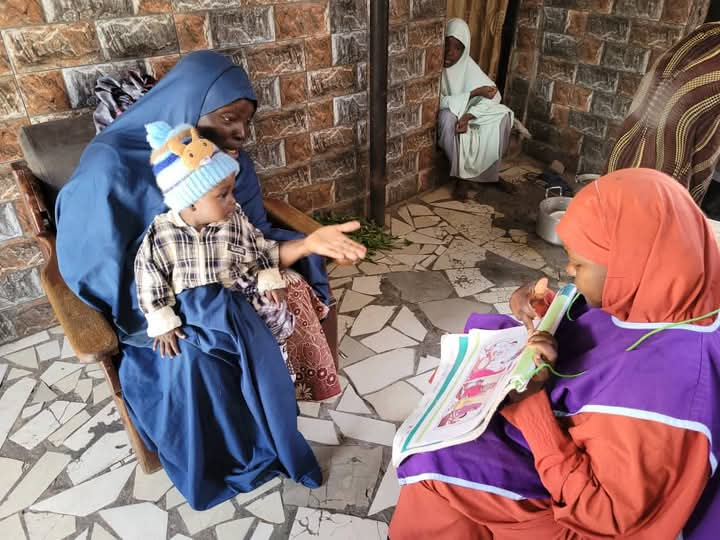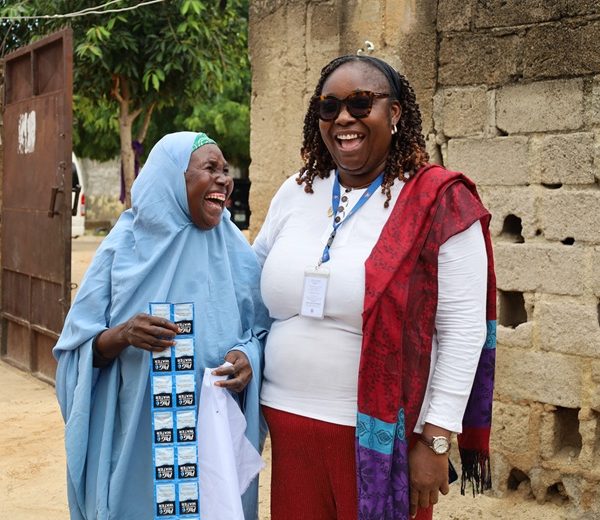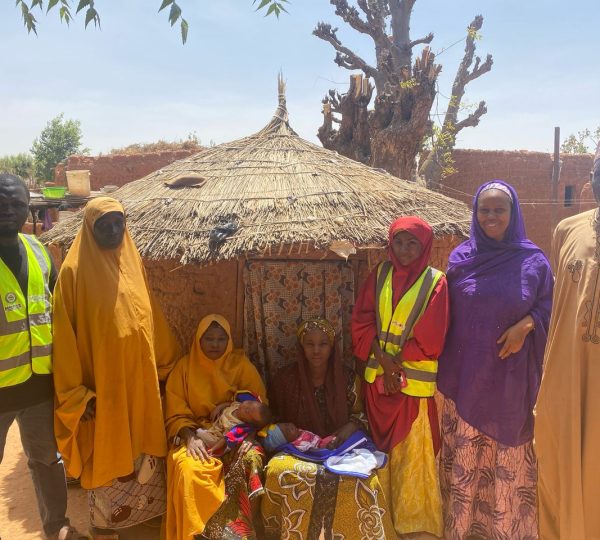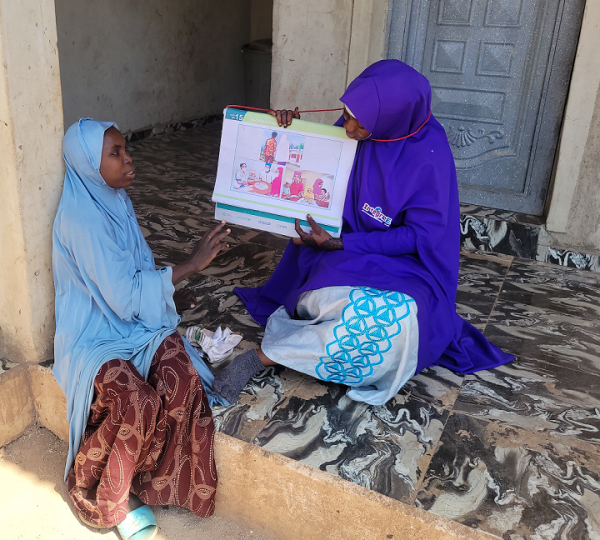From Awareness to Action: How the IntegratE Project is Empowering Women to Take Charge of Their Reproductive Health
By: Bashir Adamu Bashir, Johnson Ekele, Nasiru Muhammad, Jerry Joel, Jane Egbuchiem
In the heart of underserved communities, where healthcare access remains a challenge, the IntegratE Project by Society for Family Health (SFH) continues to transform lives. Women are being empowered with the knowledge, resources, and support they need to take charge of their reproductive health. Through innovative, community-based interventions led by trained Interpersonal Communication Agents (IPCAs), the project is closing the gap by sensitising women and connecting them to vital Family Planning (FP) and maternal health services provided by trained Community Pharmacists (CPs) and Patent and Proprietary Medicine Vendors (PPMVs).
From August 2023 to December 2024, the IntegratE Project has reached over 22,348 women in Borno State with family planning services through CPs and PPMVs. Also, 14,708 children have accessed health services for diarrhoea, pneumonia, malaria, and malnutrition. Over 193 women were referred by PPMVs and CPs for IUCD insertion, 478 women for implants, and 1,427 women were referred for injectables at secondary health facilities, while 2,142 children were referred to primary healthcare centres (PHCs) and secondary health facilities for further treatment of these conditions.
This transformative approach is reshaping futures, one informed decision at a time. One such success story is that of Hadiza Ishaqu, a 45-year-old mother of 12, residing in Tashar Dan Fulani, Biu LGA, Borno State. Her husband, a civil servant, worked tirelessly to support their large family. Hadiza, married at 15, has experienced 14 pregnancies (Gravida 14) and delivered 12 children (Para 12). Over the years, she struggled with the challenges of frequent pregnancies, limited resources, and the strain of caring for a malnourished infant. In August 2024, Hadiza was visited by IPCAs as part of the IntegratE Project’s house-to-house sensitisation campaign. The IPCAs, trained to provide information on family planning and the prevention of childhood killer diseases such as diarrhoea, pneumonia, malaria, and malnutrition, entered Hadiza’s home with warm greetings. This approach helped build trust and created a safe space for meaningful engagement.
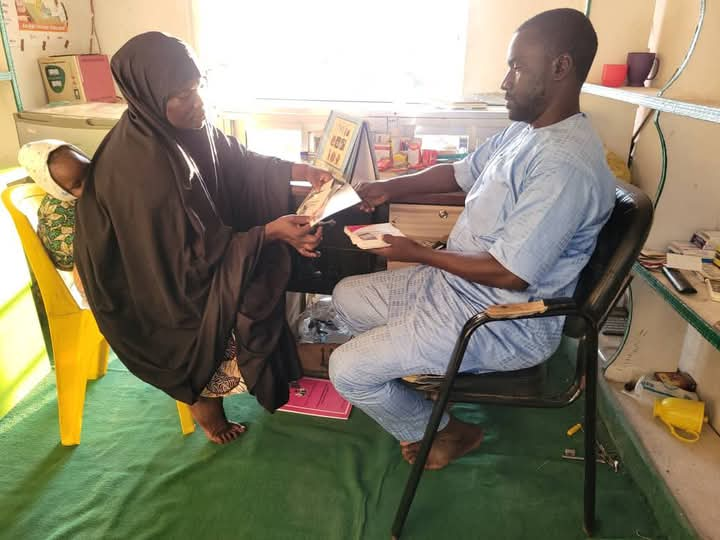
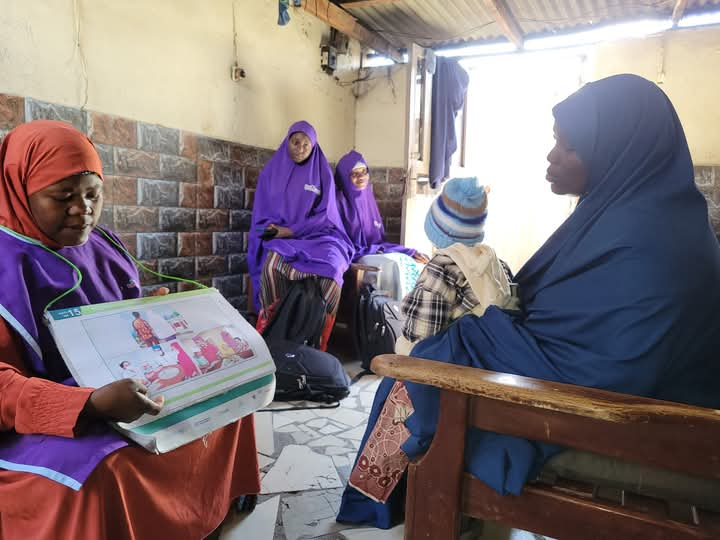
During their visit, the IPCAs observed Hadiza’s situation—she was caring for a malnourished 6-month-old baby, Hisham, while managing a household of 12 children. Despite her struggles, Hadiza had never used family planning methods. Realising her urgent need for both family planning and nutritional support, the IPCAs provided counselling and referred her to Al Jazeera, a nearby Tier 3 PPMV. At the patent medicine store, Hadiza accepted Sayana Press, a three-month injectable contraceptive that would prevent further unintended pregnancies. The IPCAs also taught her how to use affordable, locally available food resources for complementary feeding and improving her baby’s nutrition.
In December 2024, during a follow-up visit, the State Technical Advisor, Bashir A. Bashir, met with Hadiza to assess how she was managing her reproductive health and the nutrition of her son, Hisham. Hadiza reported that she was successfully using Sayana Press for family planning and feeding Hisham adequately with locally prepared complementary foods. Reflecting on her past struggles, she shared, “Na sha wahala da na sami cikin ya ron nan kuma nayi ta addu’a kada na kara samun wani cikin,” meaning, “I suffered when I conceived this child and was prayerful not to conceive again.” Hadiza’s health had been compromised by pregnancy-related complications, including an inability to produce sufficient breast milk after giving birth to Hisham. The family had to rely on buying branded milk for complementary feeding, which stretched their limited income. This hardship contributed to his malnutrition, adding to the financial strain.
Thanks to the timely intervention of the IPCAs, Hadiza has now made significant improvements in her family’s health. She benefits from family planning, which helps prevent unintended pregnancies, and her knowledge of preparing nutritious meals has helped improve Hisham’s health. Hadiza’s story is proof of the life-changing impact of community health interventions. It highlights how the IntegratE Project empowers women to make informed decisions about their reproductive health and contribute to healthier, more resilient communities. By bridging gaps in reproductive health services, the IntegratE Project is driving sustainable change, enabling women like Hadiza to take charge of their reproductive health and lead healthier, more empowered lives.
[1] Gravida (G) refers to the total number of pregnancies a woman has had, regardless of the outcome (including miscarriages, stillbirths, and live births).
[2] Para (P) refers to the number of pregnancies carried to a viable gestational age (typically 20 weeks or more), regardless of whether the baby was born alive or stillborn.
